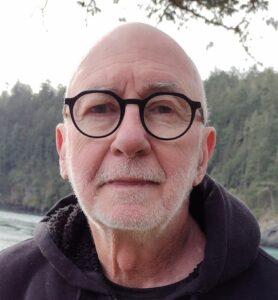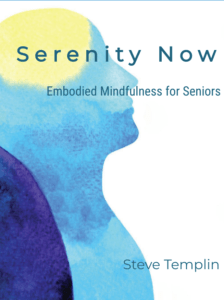The highly sensitive person’s body can be a reliable source of intuition, guidance, and insight if they only knew how to access this information. Complicating this issue is the fact that many HSPs learned early on to mute or ignore bodily felt sensations and feelings because they were too painful or threatening.
As HSPs mature it can become safer for them to experience their feelings and to nurture a more secure and embodied sense of self.
Since we live in a culture that prizes thinking and intellectual knowledge, learning to listen to the body can be a novel, if not altogether foreign experience.
Candace Pert, PhD. famously stated that our body was our subconscious mind over two decades ago. Today, we’re encouraged by more neuroscience that supports the premise that our bodies can be a source of emotional wisdom. This increase in emotional intelligence not only supports our psychological health but more surprisingly, our physical healing as well.
In The Biology of Belief: Unleashing the Power of Consciousness, Matter, and Miracles Bruce Lipton, PhD. shows us how our experience of emotions and our resulting beliefs, rather than genes, are the primary drivers of our biology, and ultimately our physical health.
From this paradigm changing point of view, our health depends on our ability to safely experience feelings, sensations, and emotions. To the degree that we can’t safely process our inner, bodily felt experience, we sound an alarm of threat and danger. This alarm fuels our psychological and physical defenses while inhibiting psychological and physical healing.
Since we can’t be in a defensive neurological and biochemical state and in a healing state at the same time, it benefits us to learn how to consciously attend to feelings and allow their energy to support our well-being.
The Value of Befriending Your Feelings
Let’s look at an experience that’s familiar to many highly sensitive people. Being more easily overwhelmed when feeling too much and then shutting down are common experiences. And for many of us this experience is accepted as one of the drawbacks of being an HSP that needs to be acknowledged. It’s a sign that it’s time to rest and reset, to avoid the consequences of running out of energy.
At other times, this response may be a message from the body that we need to pay attention in a new way and become aware of something that is putting too much of a strain and drain on our system. The body is trying to send us a message about unconscious processes.
This could be a situation where we’ve had our button’s pushed and we’ve been triggered emotionally. At these times it’s easy to rail against whoever or whatever triggered us and not want to feel the triggered emotions that are causing us to shut down.
It’s usually more automatic to blame someone for upsetting us than really paying attention to the upsetting feeling, a coded message, which is the key to unlocking the body’s unconscious wisdom, our intuitive guidance.
This could be an opportunity to experience ourselves and our emotions in a new way that would possibly transform our nervous system as well as our physical and emotional states.
This is important because blocked emotions and the ANS imbalances they produce are now seen as the underpinnings of much if not most chronic pain and illness.
This is a time when it’s beneficial to ask the body if it’s trying to get our attention and if so, if there’s something that it wants us to know.
How to Ask Your Body Questions
It will help to first connect with your body to allow energy from your ‘thinking’ head to settle in and down. Take a few slow breaths and connect with your belly or chest and just rest, settled into what you’re sitting on, noticing that you’re held securely by gravity.
Really notice and if possible appreciate the sense of being held to enhance your system’s perception of safety.
You can allow your thoughts to come and go while focusing your attention primarily on bodily felt feelings, in this example, related to overwhelm and shutting down.The idea is to notice what you’re noticing with some curiosity, with heart, rather than judging what you experience.
This more curious, open-hearted quality of attention helps to create more neurological order and the safety to experience something that’s often hidden away from conscious awareness and unconsciously triggering the threat response.
Allow your attention to gently rest upon whatever calls to you the most, whatever is there related to overwhelm or shutting down. It may be a subtle, or more obvious felt sense of physical or emotional discomfort, that may or may or may not be accompanied by thoughts, beliefs, or memories. It’s as if you’re making time to connect with felt bodily experience that may normally escape your attention.
Explore this process only as long as it’s comfortable. If it ever becomes too much stop for now and take a break. A relative degree of safety and comfort is necessary for this process to be effective. At times, sitting with a trusted friend can add just enough safety to make this process more comfortable and effective.
These sensations and feelings are frequently more than they seem. Often, they’re left over, not fully digested emotional experiences from an earlier time, a form of implicit memory that’s begging for attention and the opportunity to come out of storage. It’s as if ignored or abandoned parts of ourselves, often very young parts, need to be seen and heard. It’s through feelings and sensations that they reach out asking for our curious, caring, and patient attention.
This form of attention where we turn towards and welcome our inner feelings or parts is a form of compassionate awareness that invites healing. Whereas judging ourselves harshly fragments the nervous system and makes navigating life’s challenges successfully more difficult, this form of curious exploration restores integrity to the nervous system and makes us more resilient emotionally and physically.
When we notice bodily felt sensations and feelings curiously, brainwaves become more orderly, the ventral vagus nerve is activated, and at the same time the fight or flight response is inhibited. This neurological shift invites more spontaneous healing both emotionally and physically.
From Judging to Accepting, Appreciating, and Loving
Developing the skill of curiously tending to bodily felt experience allows us to become aware of and integrate the previously unconscious thoughts and feelings that keep us stuck in limiting emotional, behavioral, and physiological patterns.
The key to this new, embodied form of awareness is that we learn to pay attention to felt experience curiously, with heart. This is how we learn to move from judging ourselves harshly with our mind to accepting, appreciating, and loving ourselves through the capacity of the heart.
Here’s a Somatic Focusing Guide that I share with clients. This guide from Dr.’s Campbell and McMahon offers a series of steps for connecting with the wisdom of your body. As comfort and familiarity grows, and as your body trusts your conscious presence more, the more dependably your body, your unconscious mind, will share its wisdom with you.
The more I practice this and related processes the more I’m convinced that our inner life of feelings and sensations is begging us for attention, often through the very sensations and feelings that we’re programmed to ignore or reject.
Connecting kindly and curiously with ourselves on this level triggers a cascade of neurological shifts …. more right brain, alpha waves, ventral vagus nerve, and prefrontal cortex …. that opens the door to less personal inner turmoil and less interpersonal turmoil as well.


 Steve is a retired Doctor of Oriental Medicine, Acupuncture Physician, and HeartMath Trauma-Sensitive Certified Practitioner with over 35 years of clinical experience in the fields of Energy Medicine, Energy Psychology, and Biofeedback.
Steve is a retired Doctor of Oriental Medicine, Acupuncture Physician, and HeartMath Trauma-Sensitive Certified Practitioner with over 35 years of clinical experience in the fields of Energy Medicine, Energy Psychology, and Biofeedback. 